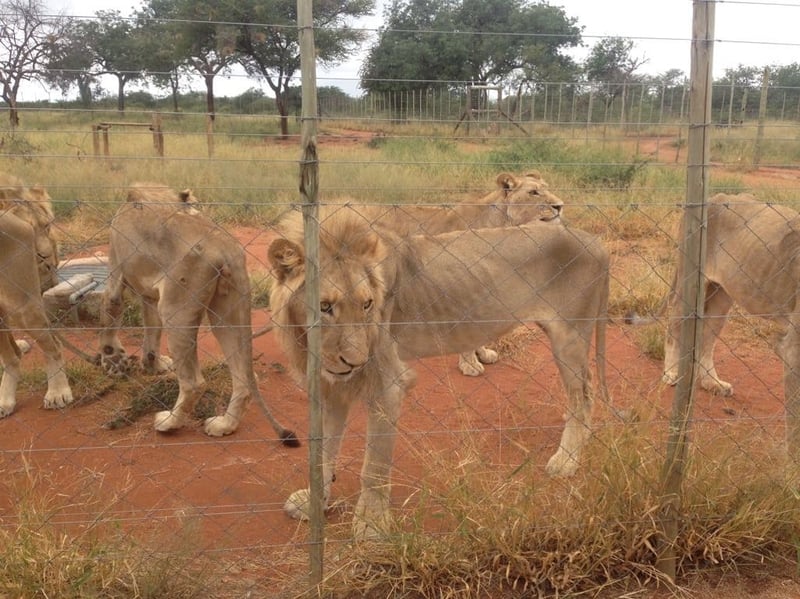
Lion farms putting lives of animals and people at risk of disease
News
Lion farms in South Africa pose a major health risk to thousands of captive lions, as well as the public at large according to a study published by World Animal Protection and Blood Lions.
In South Africa, there are currently more than 8,000 lions are bred and kept on commercial farms for tourism, hunting and the bone trade. Farmed lions are often killed so their bones can be exported to Asia for use in traditional medicine products, requiring many industry workers to handle the lions during the slaughter, preparation and export of the skeletons.
Researchers from the two organisations reviewed almost 150 scientific studies investigating diseases in African lions. They identified 63 pathogens (including bacteria, parasites, and viruses) affecting lions; some of which can be passed from lions to other animals, and some to humans.
They also listed 83 diseases and clinical symptoms associated with these pathogens, highlighting the potential harm they can cause to both animals and people.
Captive lions can carry a range of harmful pathogens that can affect humans, including Sars-CoV-2, the virus that causes COVID-19.
This study comes at a crucial time, as there are concerns the South African government may be poised to announce a new lion bone export quota. South Africa legally exports lion skeletons to Asia every year under their quota, which has dramatically increased, from 800 skeletons in 2017, to 1,500 skeletons in 2018. Currently, no quota has been set in 2019 and 2020 as a result of a High Court ruling.
Vietnam is currently the biggest importer for lion bones, so the World Animal Protection and Blood Lions are calling on the Vietnamese government to include lion bones in the import ban2. The Vietnamese government introduced a partial wildlife trade ban on 23 July in response to zoonosis concerns linked to infections such as COVID-19.
Dr Louise de Waal, Campaign manager at Blood Lions said:
“The research identified major concerns regarding captive lion breeding industry, which can have huge health implications for farm workers and tourists. With the High-Level Panel expected to make recommendations to the Minister of Environment, Forestry and Fisheries around the management, breeding, hunting, trade and handling of lions before the end of the year, we hope that they will take note of our research.”
“Now that tourism is slowly reopening, we need to make sure South Africa is a responsible, authentic and healthy destination to visit.”
Gilbert Sape, Global Head of Campaign – Traditional Medicine, at World Animal Protection, said:
“We know that lions suffer at every stage of their life in these farms. Intensive captive conditions increase the risk of zoonotic disease transmission. We hope this study can help everyone understand the health risks associated with lion farms and to alert authorities to the potential risks to both the animals and to public health. To avoid another pandemic, we need to stop the trade of wildlife”
Despite the large numbers of lions bred in captivity and the long list of diseases found to affect them, the researchers did not find any scientific studies investigating health and diseases on commercial lion farms in South Africa. Without this vital information it is not possible to effectively prevent, monitor or manage the potential health risks on these farms.
As the world struggles to respond to the current global health pandemic, it is more important now than ever to be aware of public health risks from contact with wild animals and to reduce risks wherever possible.
As the world struggles to respond to the current global health pandemic, it is more important now than ever to be aware of public health risks from contact with wild animals and to reduce risks wherever possible.